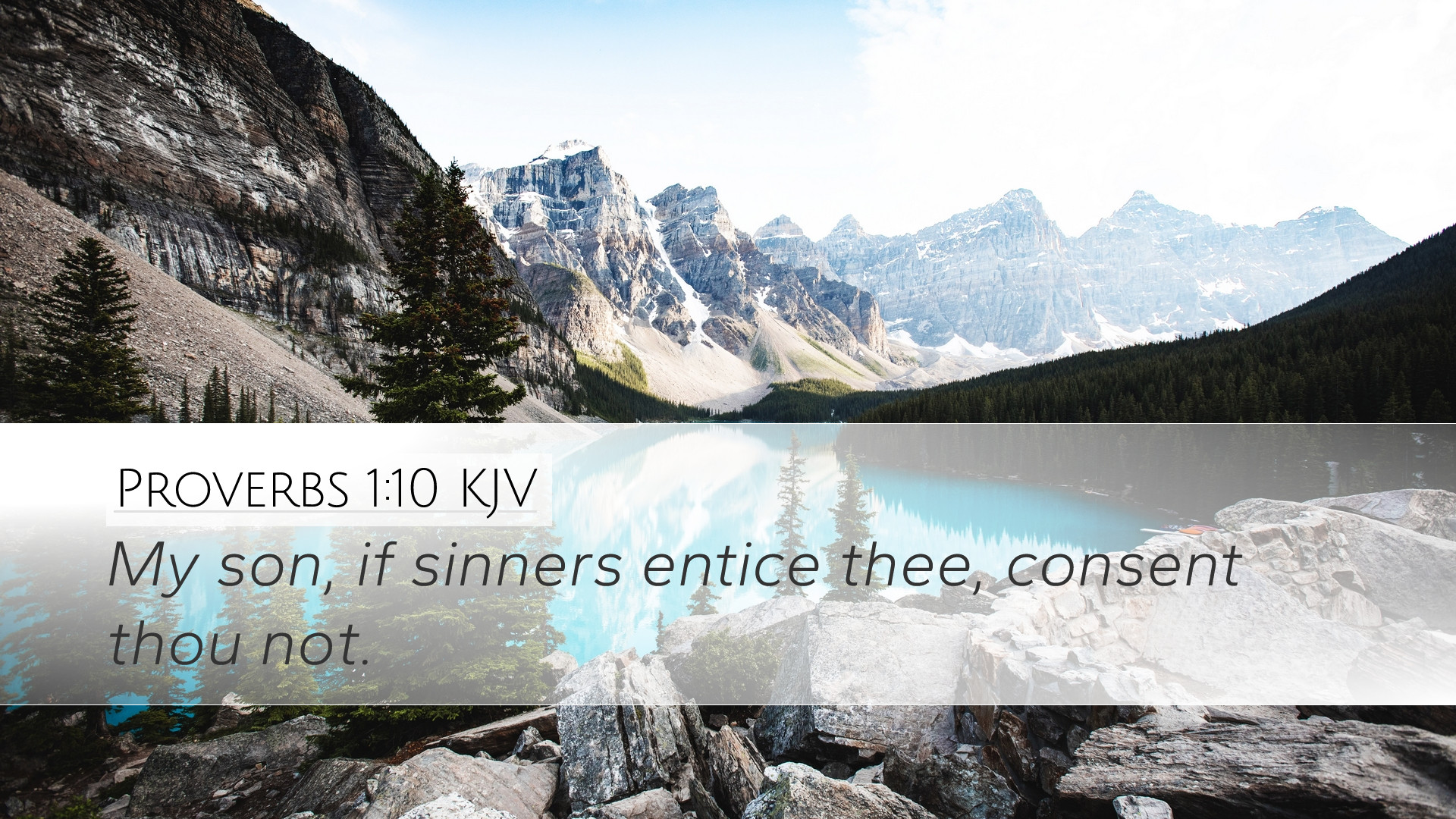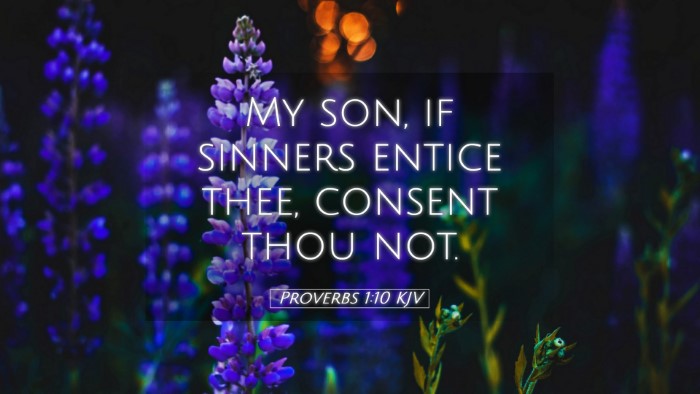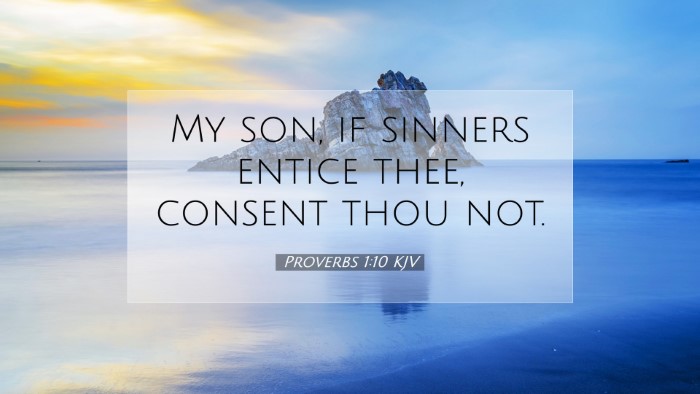Commentary on Proverbs 1:10
Verse Analysis: Proverbs 1:10 states, "My son, if sinners entice thee, consent thou not." This verse addresses the inherent conflict that believers face when tempted by sinful influences. It sets a solemn tone, indicating the urgency for the reader—particularly the young or impressionable—to remain vigilant.
Contextual Overview
The Book of Proverbs is traditionally attributed to Solomon, renowned for his wisdom. The Proverbs are designed to impart practical knowledge and guidance for living a life that aligns with divine wisdom. The opening chapters serve as an invitation to seek wisdom, while simultaneously serving as warnings against foolishness and immorality.
Insights from Public Domain Commentaries
Matthew Henry's Commentary
Matthew Henry emphasizes the personal nature of the call in this verse, indicating that it is a father’s earnest plea to his son. This is significant in the context of Hebrew culture where familial lineage and teaching were paramount. Henry elaborates that the term "sinners" could refer to various groups—whether friends, peers, or broader influences—that seek to lead one away from righteous paths.
He underscores that this enticement may come subtly and is frequently wrapped in appealing offerings. Thus, the instruction to “consent thou not” highlights the necessity of discernment. Henry advises that resisting such temptations requires not merely an external response but an internal fortitude strengthened by wisdom.
Albert Barnes' Notes
Albert Barnes brings out the view that this verse serves as a warning against peer pressure that often accompanies adolescence. He remarks that the exhortation implies that young individuals are easily swayed by companions and should therefore be cautious about their associations. Barnes points out that the invitation to sin can come in various forms—through charming speech, enticing promises, or a sense of belonging.
Moreover, Barnes draws attention to the imperative 'consent,' which is a proactive choice rather than a passive avoidance. He implies that the wisdom of God equips individuals to anticipate and rebuff such seductions from sinners, thus reinforcing the theme of personal responsibility in moral decision-making.
Adam Clarke's Commentary
Adam Clarke elaborates on the ethical implications inherent in the verse, emphasizing that the plea against consent highlights a deep moral engagement. He notes the societal implications; the term "sinners" can embody various archetypes of wrongdoing within a community, signaling that temptation may arise from close relationships.
Clarke also points to the necessity of being fortified by the fear of God, asserting that understanding the consequences of sin is critical for resisting such temptations. He connects this teaching to broader biblical themes of righteousness and the importance of wisdom as a protective barrier against folly.
Theological Implications
This verse has profound implications in theological discourse about human nature and the lure of sin. It asserts that while temptation is part of the human experience, individuals have the agency to resist. This directly engages with the concept of free will—a core tenet in Christian theology.
Furthermore, it stresses the importance of community and the influences that surround individuals, suggesting that engagement in prayer and the study of scripture can cultivate a greater awareness of these dynamics.
Application for Pastors and Theologians
For pastors and theologians, Proverbs 1:10 serves as a critical reminder to counsel their congregations about the importance of moral vigilance and the power of choice in everyday life. They are called not only to uphold the standards of righteousness but also to equip their communities with tools for discernment and resilience against societal pressures.
This verse also invites sermons focusing on personal responsibility and ethical decision-making. It challenges both leaders and laity alike to engage actively in fostering an environment that promotes biblical wisdom over societal enticements.
Conclusion
Proverbs 1:10 stands as a beacon of wisdom amidst the complexity of human interactions and the persistent nature of temptation. It implores us to consider carefully the influences we allow into our lives and to stand firm in our convictions. As students of the Word, embracing the insights from Henry, Barnes, and Clarke allows us a richer understanding of how to navigate life’s moral challenges with discernment and courage.


